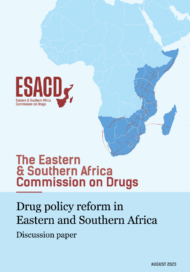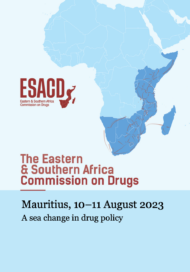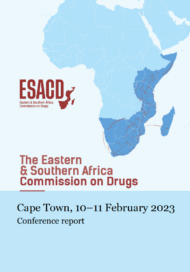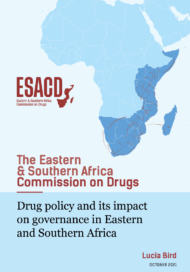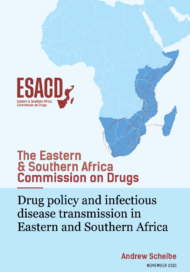Posted on 30 Aug 2023
The seductive but one-dimensional war on drugs policy deployed against Africa’s illicit drug markets has failed, as it has globally. In the six decades since UN member states agreed the Single Convention on Narcotic Drugs, the use, production and trade in controlled substances across Eastern and Southern Africa (ESA) and the continent as a whole has expanded exponentially, all in a long-term context of prohibition. Many African drug markets have transformed from the geographically restricted traditional plant-based drug economies of khat and cannabis, to become an industrial hub for the manufacture, production and trans-shipment of a variety of controlled drugs, whose related economies have significantly skewed the ability of some states to effectively manage the health and social impacts of these developments. The imposition of internationally defined and domestically attractive prohibition measures have been unsuccessful in arresting the growth of these trades, or the violence and institutional erosion that they engender.
Like much of the continent, drug control in ESA has been defined through the securitization lens, extending to the militarization of security structures by external forces. Where international actors feel that African efforts are inadequate, foreign military powers have deployed assets to support continental drug prohibition efforts and to execute drug interdiction measures on African territory directly. Yet, these efforts have been unsuccessful in significantly curtailing the regional drug trade. Further, some would argue that in fact it is the prohibition measures themselves that give rise to some of the violence and market expansion seen in recent years.
This failure is not a product of ESA; rather, it is a product of global (and, by extension, continental) drug policy myopia. However, key policy actors have lately begun to acknowledge this damaging bias. The clear proliferation of drug cultivation, trafficking and consumption within the context of prohibition is generating impetus for drug policy reform thinking and action. More than 50 countries around the world have now eschewed strict prohibitionist drug policy approaches and begun to liberalize, in varying degrees, their approach to the drug trade and the health and rights of consumers, reflecting a significant recognition of the need for a sophisticated and holistic approach. That eleven African countries have also begun to embark on this path of reflection and reconsideration is equally remarkable, particularly as this has only taken place since the 2016 UN General Assembly Special Session (UNGASS) on the World Drug Problem.
This trend towards more liberal drug policies globally – incipient within ESA – has evolved primarily through nations’ policy positioning on cannabis. There is an evolving global consensus that cannabis, although scheduled, is less harmful (the ‘soft drug’ thesis), and potentially more beneficial to society and its members from a socio-medical and livelihoods development perspective, when it is either decriminalized or legalized rather than prohibited. In some countries, cannabis has become a mainstream consumer commodity, alongside tobacco and alcohol. This drug’s consumer base has evolved in these countries to consist largely of recreational, middle-class users. It has rebranded from a drug of the marginalized to become a commodity of the mainstream, and the potential financial benefits afforded to the state from the taxation of its trade has been key to its legal transition.
The addition of health and human rights focused criteria to the drug policy reform debate has stoked the further acceptance of policy reform, particularly in the health institutions of the region. Unfortunately, however, the securitization of drugs remains the predominate lens through which African security forces view cannabis and other drugs. It remains the channel for assistance by external forces – often to domestic security institutions directly – that seek to peddle traditional prohibition-oriented programming.
